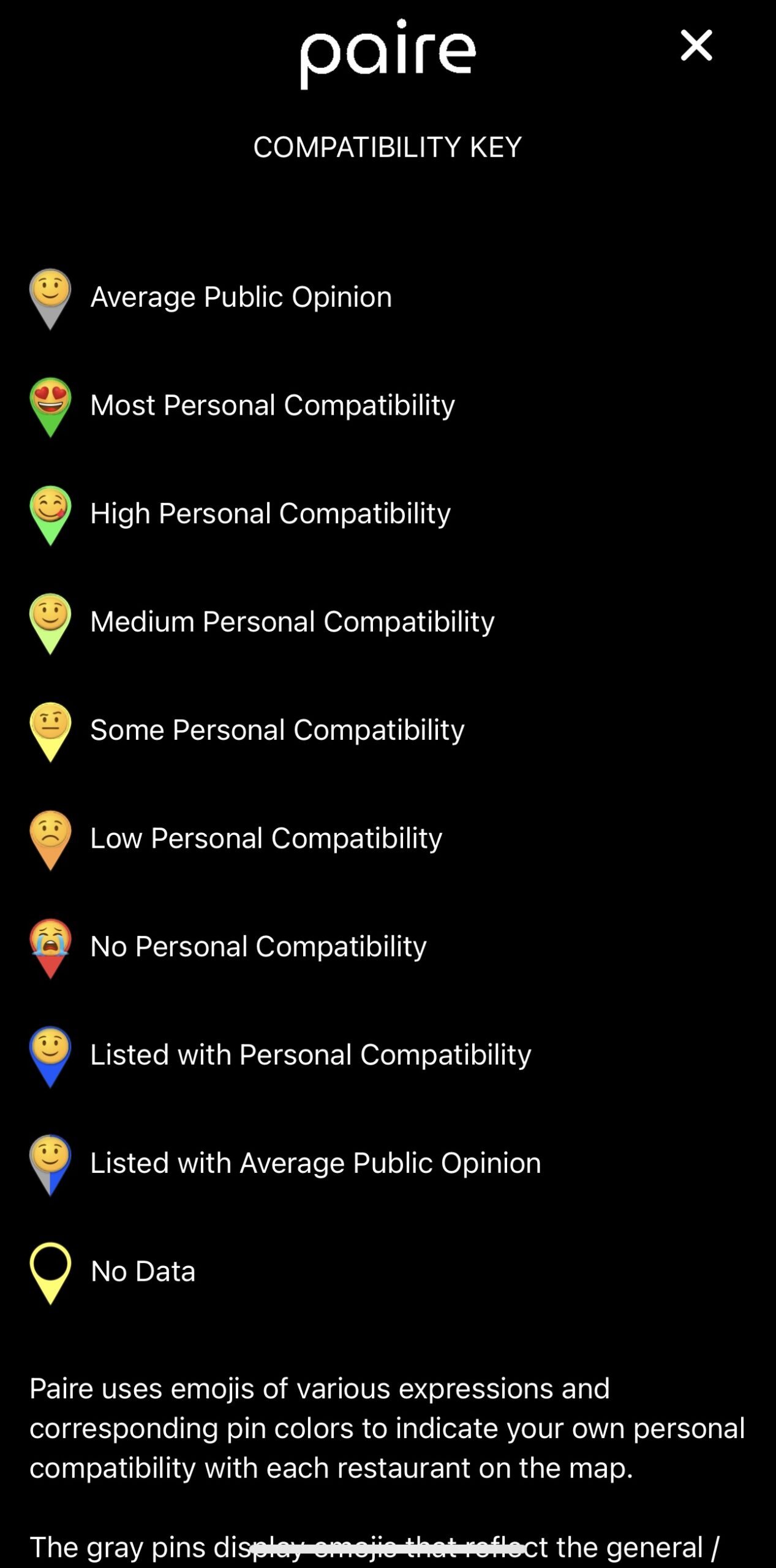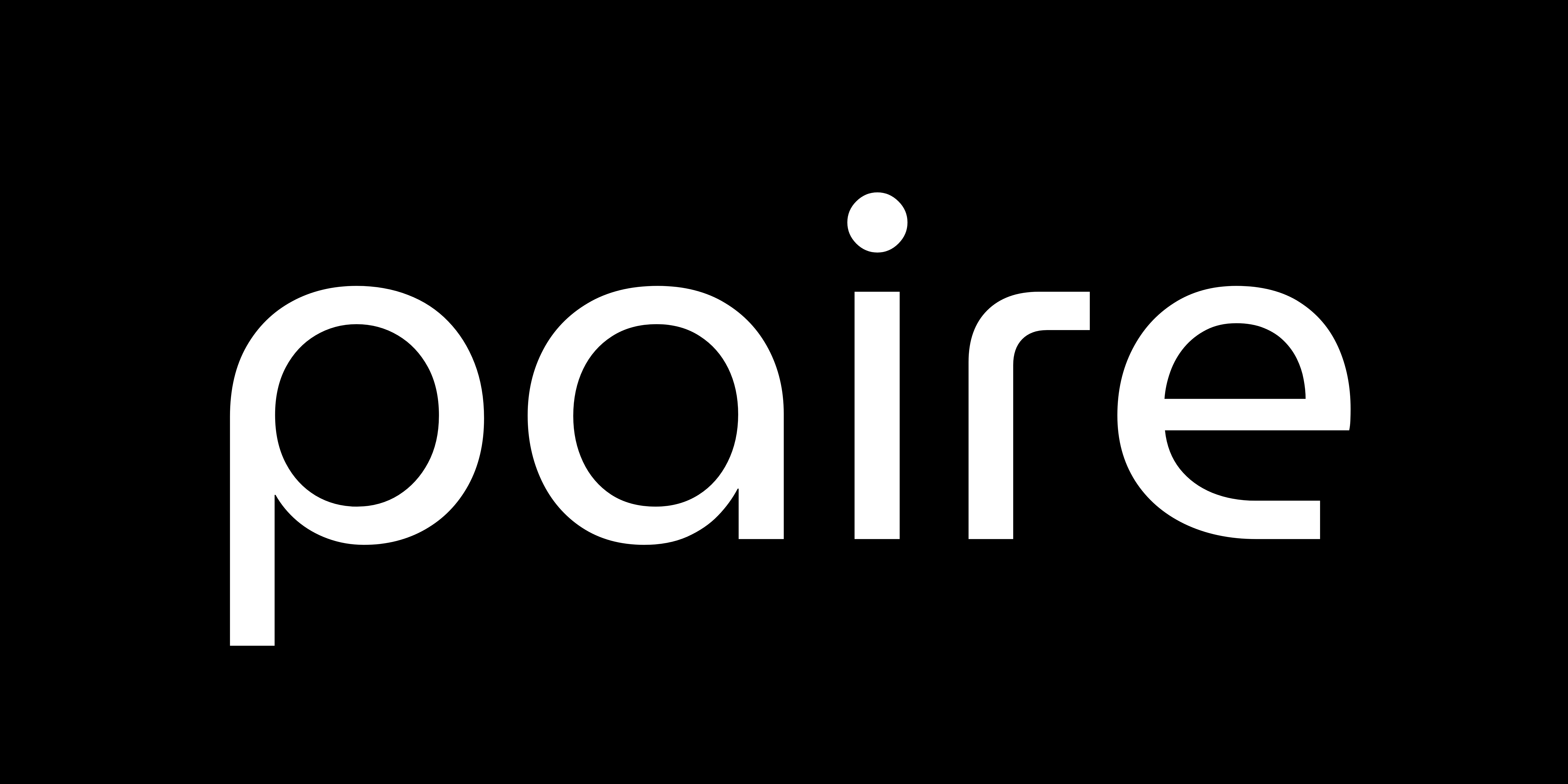Taste is personal and "The Best" is something different for everyone.
Sometimes the restaurants you like best aren't the most popular places, the ones filled with tourists or the ones helmed by award winning celebrity Chefs.
If you like discovering hidden gems or falling in love with lesser-known little out-of-the-way places that are quietly killing it every night - you'll love Paire.
Our members tell us that Paire is "like having a best friend in every city who knows you and the local dining scene like the back of their hand.".
Our predictive analytics / ML engine gets to know your personal taste and unique preferences in order to serve as your personal guide through any neighborhood with dining recommendations custom-tailored just for you.
In a world of social content aggregators and one-size-fits-all restaurant ratings, no one puts it more simply (or more eloquently) than Rhett McLaughlin and Link Neal of
Good Mythical Morning who sing:
"...I like what I like and I like liking the things that I do - and I don't mind that I don't like liking the same exact things as you."





